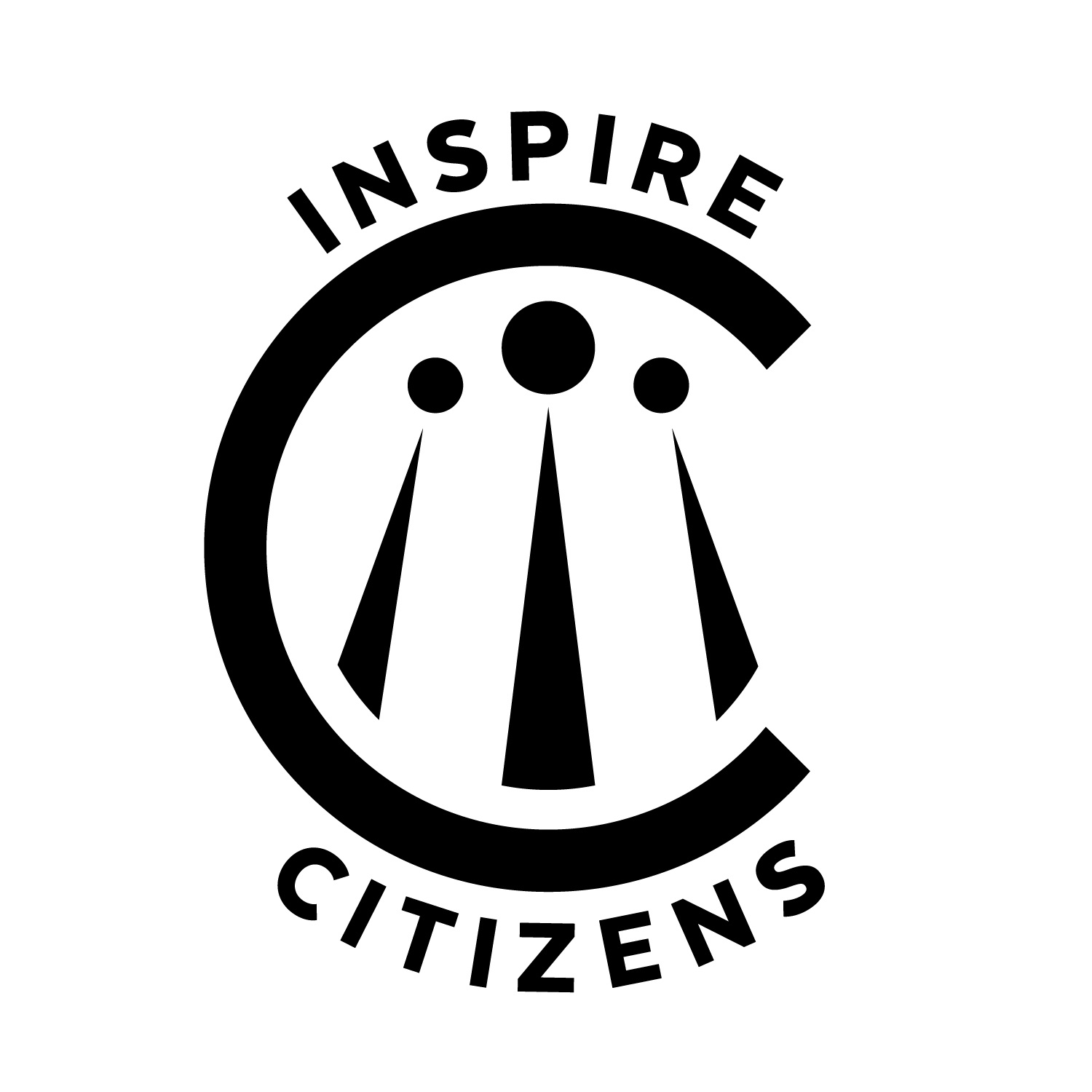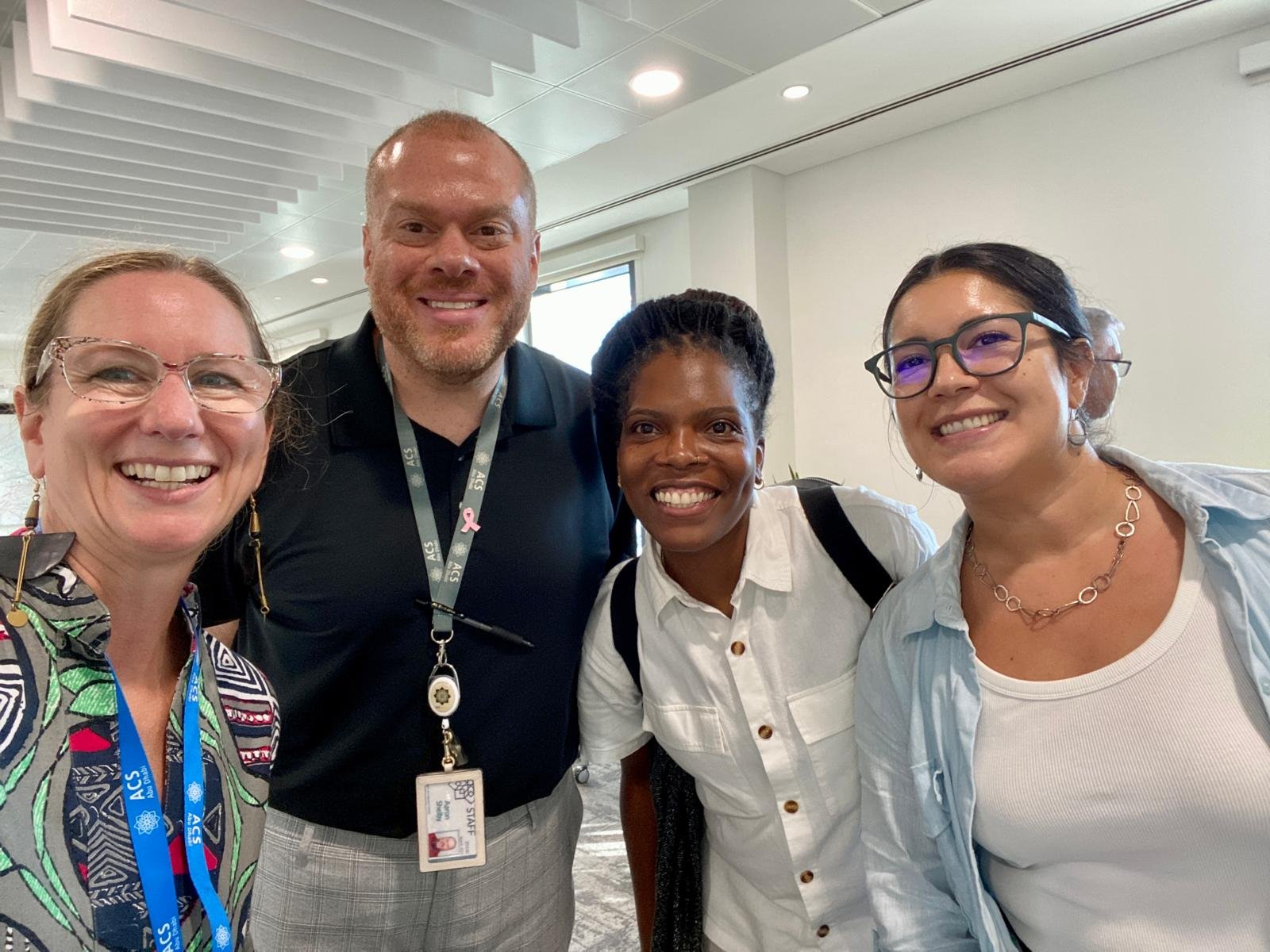Experiential learning and the power of meaningful reflection
by LeeAnne Lavender, Service Learning & Storytelling Specialist
I just received an email from Christine Bates, a grade 6 teacher at the American Community School of Abu Dhabi and, with her permission, I am excited to pass along something she wrote.
“I wanted to share with you a short video I made to highlight the Greece trip with the 6th graders. We'll be sharing this with the middle school at our showcase on Friday. I added just a few of the prompts the kids were asked, and I think you'll see how powerful they are! I've been going through the prompts, and I'm so glad I added them this year - it's brought a depth to the trip that I didn't know was missing.”
Christine’s email made me do a serious happy dance because it demonstrates the power of thoughtful reflection prompts and approaches for experiential learning trips.
To give this some context, I have been collaborating with Aaron Moniz from Inspire Citizens in a partnership with ACS-Abu Dhabi to develop deeper approaches to interdisciplinary learning and service learning and service as action (particularly in the elementary and middle school divisions). Aaron and I have worked on site with the ACS team on three separate occasions, and each time we have worked on aspects of the school’s Viper Venture experiential learning weeks for middle and high school students.
Aaron and me at ACS early in 2025.
Like many international schools, ACS works with outside trip providers to offer students meaningful experiences within the UAE and outside the UAE. Students have the choice each year about staying in the country or travelling elsewhere, and trips feature a variety of experiences that involve service, environmental conservation, and personal/physical challenges. These options align with the school’s four pillars of academics, athletics, arts, and service, as well as the school’s four core values of courage, compassion, curiosity and integrity.
Experiential learning weeks like this have incredible potential to connect academic learning from a variety of subject areas, and to help students stretch the edges of their comfort zones when it comes to being in new situations and learning about themselves, others, and environmental systems and challenges. However, a common challenge is that experiential learning weeks occur without a purposeful plan for curricular integration and connection, and/or without a plan for helping students prepare to cultivate mindsets that encourage more openness, perception, and empathy when encountering people, cultures and places that are different from what they know or have experienced.
The ACS team wanted to work on these aspects of Viper Venture experiences, and more purposefully frame the experiential learning weeks so students could be more mindful of anticipating new experiences, people, and situations, and then more able to navigate discomfort, newness and complexity on the ground. After Viper Venture experiences, the team also wanted to design more purposeful post-trip reflections and sharing so students can hang onto valuable lessons and learnings, and use these to amplify a divisional culture of personal growth and intercultural understanding.
Digital journalling with high school students
The high school team ideated about meaningful reflection in the fall and, as a result, created a digital journal for each student (with reflection prompts for sessions before the trips, during the trips, and after the trips). Students were able to create reflections in a variety of ways (writing, photography, video, and audio) to allow each student choice and agency in capturing their learning in meaningful ways. You can see notes from the ideation session, as well as examples of pages from the digital journal, below.
HS advisors were supported in helping students use the digital journal through a slide deck and prepared advisory lessons; this equipped teachers to coach students in critical mindsets and enhanced awareness of the purpose of the Viper Venture trips.
“This year, the Viper Venture reflection journal elevated how students engaged with their experiences, helping them make deeper connections to their academic learning, personal growth, and global perspectives,” says Mel Pubil, the ACS Service Learning & Sustainability Coordinator. “Teachers appreciated how it sparked conversations and strengthened connections, making reflections more meaningful. While we introduced a standard journal for all experiences this year, next year we aim to continue refining it by adding elements tailored to specific academic connections that will deepen the impact of Viper Venture.”
Reflection sessions for middle school
Middle school students had the option of staying in the UAE for an Abu Dhabi cultural experience or a conservation experience on the island of Sir Bani Yas, or to travel to Greece and learn about ancient history and a variety of social and ecological issues. For all students, advisory sessions before the Viper Venture week were used to explore a number of reflection prompts related to the four pillars and core values. During the experiential learning week, purposeful reflection time was built into the schedule and it was this approach that prompted Christine to write to me after returning from Greece, as she noticed deeper engagement and growth mindsets in students this year.
Christine said that her “plan is to create videos of the prompts to show parents at our upcoming grade 6 band and choir concert. I'm going to try to get organized and arrange the prompts in alphabetical order and have them on multiple screens leading to our theatre”; this ensures that parents will join in the reflection process and journey, too.
Grade 7 students at ACS also had the option of the Abu Dhabi cultural trip, Sir Bani Yas, or a trip to Kenya to learn about wildlife conservation and access to quality education (via a partnership with a local school near Tsavo National Park). Cultural awareness was a key aspect of this Viper Venture experience, and students were encouraged to think about assets and abundance in new ways and to seek new understandings of what assets look like in communities and schools different from their own. The reflection prompts below show some of the questions that helped students prepare for their Viper Venture experience, as well as reflect during their experience.
Grade 8 students, in addition to the Abu Dhabi and Sir Bani Yas trips, had the option of travelling to Nepal, and the grade 8 teachers used a number of sustainability tools to help students prepare for their experiences. Compass Education’s Sustainability Compass and the Iceberg Model were key tools used before, during and after the trip, and this resulted in deep learning about root causes and open, perceptive, empathetic mindsets. Students even engaged with a MAD (Make a Difference) module before the Viper Venture trips to more deeply explore sustainability, patterns, structures, and mindsets.
Below: examples of how grade 8 students used the Sustainability Compass to frame their Viper Venture experiences.
Three steps for taking experiential learning to the next level
The key to redesigning Viper Venture trips to create more connection, relevance, and meaning for ACS students this year was to:
articulate a vision for the experiential learning program as well as outcomes for students (in the case of ACS, critical mindsets for service and intercultural understanding, as well as deeper understanding of self, others, and environmental sustainability)
create a plan for each pre-trip advisory session along with resources for teachers (trip advisors) and students
ensure meaningful reflection was part of each day of the Viper Venture trips
design a post-trip experience where reflection, sharing, and celebration could amplify the learning and growth that each student experienced
If your school has experiential learning weeks or trips that could benefit from a reflection boost, I hope the ACS example inspires you to think about how to plan ahead for next year in purposeful ways. And if you need help with this, reach out and I’d love to support you!
Below, left to right:
An ideation session about the ACS middle school Viper Venture trips
Aaron Shelby (Secondary Curriculum Coordinator), Danielle Evans (grade 1 team leader), and Mel Pubil (Service Learning & Sustainability Coordinator); Mel is a key leader with the high school Viper Venture experiences
Aaron and me with Bobbi Donison (Director of Learning) and Aaron S.
LeeAnne is an independent educational consultant, coach and facilitator for international educators, and she is also the AISA (Association of International Schools in Africa) Service Learning Program Coordinator. She specializes in storytelling, digital storytelling, service learning and global citizenship, and she loves partnering with schools and teachers to create learning experiences that have impact and lead to deep learning. She’s committed to helping educators build changemaker/changeseeker cultures to equip students with skills and mindsets to engage in positive, purposeful action. You can learn more about LeeAnne at https://www.leeannelavender.com/.













